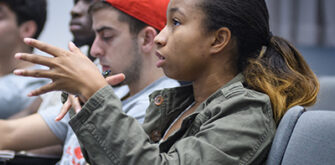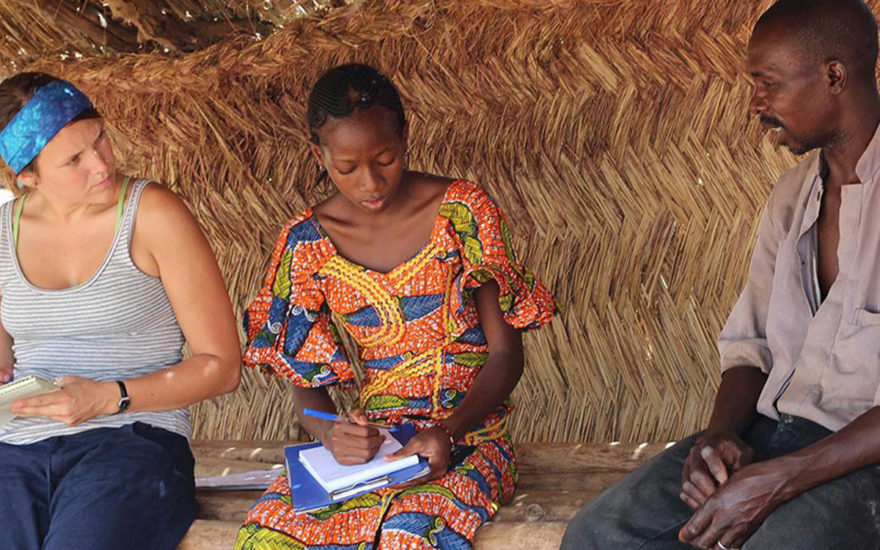In the classroom, IDSC majors develop critical analytical skills, explore links between local and global perspectives, and focus on the human and ecological dimensions of sustainability.
The major requires the completion of at least 12 courses. You’ll take five core courses and four in a subfield of international development and social change that interests you. You’ll also complete one methods course, two skills courses, one internship or directed research project, and a capstone seminar.
We encourage you to take courses across programs representing diverse perspectives, including undergraduate classes offered through Clark’s Graduate School of Geography and School of Management. This provides opportunities for you to gain the skills you need to work across the nonprofit, private, government, nongovernmental organization, and research sectors.


